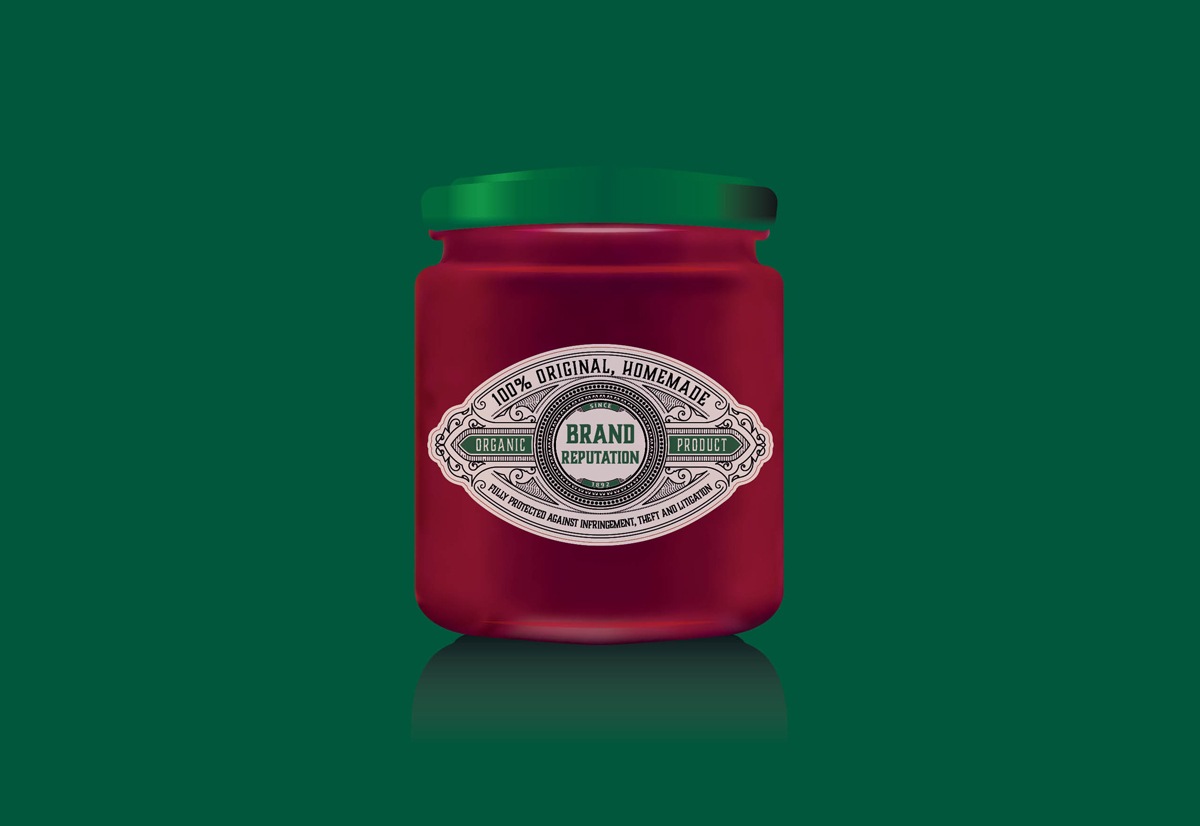Specialist lawyers, covering areas such as trade mark protection and enforcement as well as advertising and marketing, have had a role to play in shaping the success of some of the biggest global consumer brands.
And the benefits of using external advisers to help protect is plain to see, considering the huge amounts of money that can be made from cornering a market on a product.
‘If you’re a consumer brand, then a high proportion of the value on your balance sheet will relate to the value of your brands, particularly for luxury brands – people don’t want knock-off Burberry handbags. You want to make sure that people are only buying your products as opposed to the knock-offs. It cannibalises sales and causes a spiral in losses if you don’t protect your position,’ says Robert Wegenek, an IP partner at Squire Patton Boggs and a specialist in the advertising and marketing sector.
Brand management is a diverse practice area within law firms. As well as the big-ticket litigation IP lawyers sometimes see, a lot of brand management work is advisory and designed to support a corporate with the legalities of launching something new into the market or re-branding an existing model.
Says Sally Britton, head of brands at Mishcon de Reya: ‘A lot my work is about looking at brands and identifying the elements that are going to add value to their business, helping to protect the brand and pushing people away. By involving lawyers right from the start, the corporate gets better results. It’s as simple as making sure that if you’re launching a brand or a product in China, you wait to register your trade mark before publicising it.’
Mishcon set up an in-house brand management arm in 2018 – MDR Brand Management – after becoming an alternative business structure in 2015, and former Fieldfisher senior associate Mark Smith set up his own boutique firm, Purdy Smith, in 2017, specialising in a range of brand management services.
Enlisting legal support when launching a new brand or product is important, according to Smith, because while companies are careful to ensure that their main business names do not infringe the intellectual properties of other companies, they can sometimes forget to screen a new brand name, logo or packaging idea that might need to be registered as well, making them vulnerable to infringement attacks: ‘Marketing and product development teams can at times be notorious for failing to run these matters past their internal legal team or outside counsel.’
Brand management advisory work has long been a lucrative area for law firms. However, how much and what types of work in-house legal teams will outsource varies as many prefer to retain their brand management specialists in-house.
‘Really it depends on the company and its scale and size and therefore how much how much resource they have in-house,’ says Smith. ‘You’ll find with a lot of big brands they may have significant resources in-house in terms of monitoring intellectual property infringement, or have dedicated lawyers looking at that area. For other less established brands, it’s almost something by necessity they will have to outsource. In particular, with a lot of start-ups it’s something you can become quite exposed to.’
‘The big consumer-led businesses like Unilever and Procter & Gamble will have a lot of in-house expertise and often they will only go to outside counsel to sense-check what they’ve decided on. But then you’ve got the much smaller businesses and often we’ll be advising them on making complaints to the Advertising Standards Authority (ASA),’ says Brinsley Dresden, head of advertising law at Lewis Silkin.
Adds Wegenek: ‘We’re seeing a trend in brands increasingly in-sourcing their advertising legal work. You’d expect GCs to look for external advice but then once they’re up and running more there’s less of a prerogative to instruct lawyers and GCs are increasingly responsible for providing advice on contracts and production. That’s a general industry drive and it’s partly about saving costs but also about closer connection to the rest of the business.’
Enemies close
One of the most crucial pieces of advice brand management lawyers give clients wanting to go to market on a new product or service is the need to think about the shoe being on the other foot and preempt lines of attacks from competitors.
‘When I sit down with the GC the first thing I’m saying to them is that we need think holistically – my job is to step back and put myself in the shoes of the competitor, regulators and other market players to work out how they will react to new product or brand launches,’ says Rafi Azim-Khan, head of data privacy and marketing law teams at Pillsbury.
Dresden has seen an uptick in IP disputes work in the telecoms sector due to the arrival of 5G. In March, following complaints from various mobile phone providers including EE and Vodafone, the ASA banned an advertising campaign by rival Three that implied it was the only provider that could offer customers ‘real’ 5G services. ‘Brands are often unhappy about adverts that may not infringe their trade mark but put them at a competitive disadvantage. They will mostly likely complain to the ASA rather than try and sue for trade mark infringement, which is time consuming and expensive,’ says Dresden.
Launching a new product in today’s mainly online world, is no walk in the park and businesses are advised by brand management specialists to handle social media strategies carefully. Says Britton: ‘Social media can be a big line of attack against another brand. Perhaps you’re writing a letter to another corporate and you’re much more aware now that it may well get published on social media. It’s all very much more in the public forum now and by engaging with someone you might have framed the problem.’
Adds Azim-Khan: ‘The UK’s Information Commissioner’s Office has said it will be cracking down on misuse of data in digital marketing and breaches of the General Data Protection Regulation. If I were crystal ball gazing, I think the next few years will see competitors who are unhappy with a rival’s new product or market entry look to derail it not just through trade mark infringement or comparative advertising claims, but also through complaints over improper data use or digital campaigns, given the potentially very high fines.’

Rafi Azim-Khan, Pillsbury
But do trade mark disputes adversely affect brands’ reputations? Opinion is divided – especially considering the high volume of infringement spats that go on behind the scenes. ‘About 99% of these trade mark cases settle and don’t go to court,’ says Wiggin IP partner Anna Carboni.
‘Brand and reputation are interlinked but I’d take reputational management to be more about the corporate and the institutional investors, whereas brand management is more about protecting the reputation of the brand to the client base – although there will be an overlap,’ says Wegenek. ‘There’s Google, which is different as a brand from its parent company, Alphabet, which most people wouldn’t recognise.’
Adds Britton: ‘In terms of writing on behalf of a brand to a third party that is being accused of infringement, there are factors you have to consider. Do you ask them to destroy their stock because it can’t go to market? Is there a better way of dealing with it? There’s a sustainability question around that now.’
The outlook for the next year and the upward trend in companies requiring help with brand management in the increasingly broad, digitised and regulated industry of media, marketing and advertising is positive.
However, Covid-19 is already having its impact – not just by halting brand management projects and advertising campaigns of many companies for the time being. ‘Organisations will have to be very careful about not making misleading claims about the virus. They will need to make sure that advertising is pitched appropriately,’ says Smith.
However, the coronavirus outbreak has led to some new ventures for some well-known consumer brands, albeit a temporary change in product lines. In March independent brewer BrewDog begun producing hand sanitizer called BrewDog ‘punk sanitizer’ amid shortages. Fashion labels Yves Saint Laurent and Balenciaga also announced they would begin making surgical masks instead of luxury clothing. These brands are likely to receive praise for their innovative efforts to help people in a national crisis. Says Dresden: ‘These are nice examples of something really positive that’s been happening in brand management at the moment.’
Chocolate wars – significant recent brand disputes
In February 2019 Cadbury lost a long-running legal battle to protect its trade mark for the use of the colour purple in its packaging, making it more difficult for the chocolate giant to block rivals from using the colour in products. In 2012 Cadbury won a case to stop other chocolate firms using the colour – known as Pantone 2865c – but Nestlé challenged the decision that the colour was distinctive enough to be trademarked and won its case in the UK Court of Appeal.
Nestlé and Cadbury have also continued to lock horns over Nestlé’s attempts to trademark the shape of its KitKat chocolate brand, which the UK Court of Appeal rejected in 2017 in favour of Cadbury. Nestlé has spent more than a decade fighting to trade mark the wafer shape of the KitKat but in 2018 the case finally came to a close when the European Court of Justice rejected an appeal by Nestlé and said its KitKat shape did not merit protected status in the EU. Similarly in 2018, budget chain Poundland ran into trouble with its ‘Twin Peaks’ chocolate bar launch when the manufacturer of Toblerone, Mondelēz International, started legal proceedings against it over allegations of copycatting the design of Toblerone bars. Poundland was forced to remove the products off shelves but reached a deal with Mondelēz to sell half a million of the chocolate bars over Christmas.
In November 2019 Manchester-based clothing company, Bentley Clothing, won a trade mark battle against luxury car manufacturer Bentley Motors over the use of the name ‘Bentley’ on its clothing products. The outcome means Bentley Motors is prohibited from using the name Bentley in its clothing range in the UK. The dispute has been ongoing since Bentley Clothing, which was founded in 1962, approached the car firm in 1998 – the High Court action was launched in 2017.
McDonald’s also lost its exclusive claim to the ‘Mc’ trade mark on some of its food products within the EU in 2019 after a dispute with Irish food chain Supermac’s, which owns a string of fastfood outlets. Supermac’s complained to the European Union Intellectual Property Office (EUIPO) which ruled that McDonald’s had not proved legitimate use of ‘Mc’ on some of the products it trademarked. However, the EUPIP did uphold McDonald’s’ right to own the ‘Mc’ trademark on chicken nuggets and some of its sandwich products.


